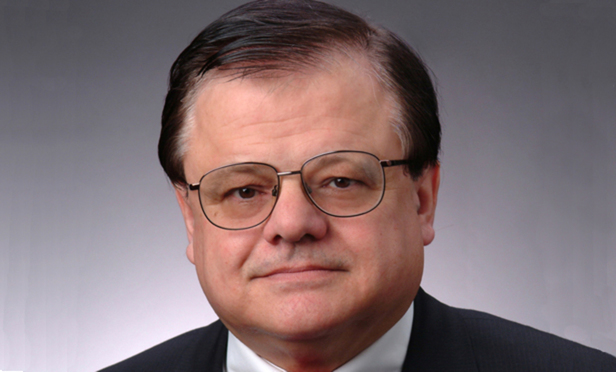Michael J Hutter

April 07, 2016 | Law.com
Admissibility of Evidence Obtained From FacebookIn his Evidence column, Michael J. Hutter addresses the four major evidentiary hurdles—relevance, authentication, hearsay, and best evidence—that must be overcome to admit Facebook posts claimed to be posted by the owner, whether it be the profile page, or a posted message, photograph or video, when offered against the claimed owner.
By Michael J. Hutter
27 minute read

February 03, 2016 | New York Law Journal
Fiduciary Exception to Privilege in Shareholder ActionsIn his Evidence column, Michael J. Hutter discusses whether a corporation and its attorneys must disclose privileged communications relevant to corporate matters to shareholder plaintiffs in actions based upon breaches by management of their fiduciary duties or other wrongdoing arising out of those matters.
By Michael J. Hutter
12 minute read

December 03, 2015 | New York Law Journal
Impeachment of Trial Witnesses and the Collateral Evidence RuleIn his Evidence column, Michael J. Hutter furthers his discussion of New York's collateral evidence rule, which bars the contradiction of a witness's answers concerning collateral matters by the introduction of extrinsic evidence for the sole purpose of impeaching credibility.
By Michael J. Hutter
13 minute read

December 02, 2015 | New York Law Journal
Impeachment of Trial Witnesses and the Collateral Evidence RuleIn his Evidence column, Michael J. Hutter furthers his discussion of New York's collateral evidence rule, which bars the contradiction of a witness's answers concerning collateral matters by the introduction of extrinsic evidence for the sole purpose of impeaching credibility.
By Michael J. Hutter
13 minute read

October 01, 2015 | New York Law Journal
Impeachment of Witnesses and Out-of-Court Hearsay DeclarantsIn his Evidence column, Michael J. Hutter discusses two issues arising under New York law governing impeachment: the ban on the use of extrinsic evidence that contradicts the witness's testimony on a collateral matter, and impeachment of a hearsay declarant whose statement is admitted into evidence pursuant to a hearsay exception.
By Michael J. Hutter
11 minute read

September 30, 2015 | New York Law Journal
Impeachment of Witnesses and Out-of-Court Hearsay DeclarantsIn his Evidence column, Michael J. Hutter discusses two issues arising under New York law governing impeachment: the ban on the use of extrinsic evidence that contradicts the witness's testimony on a collateral matter, and impeachment of a hearsay declarant whose statement is admitted into evidence pursuant to a hearsay exception.
By Michael J. Hutter
11 minute read

August 06, 2015 | New York Law Journal
Recent Confrontation Clause Testimonial DecisionsIn his Evidence column, Michael J. Hutter reviews two recent decisions, one a major step forward by the U.S. Supreme Court in clarifying the meaning of "testimonial" under the Confrontation Clause, the other showing the strong commitment by the state Court of Appeals to policing prosecutorial efforts to evade the Crawford rule.
By Michael J. Hutter
12 minute read

August 05, 2015 | New York Law Journal
Recent Confrontation Clause Testimonial DecisionsIn his Evidence column, Michael J. Hutter reviews two recent decisions, one a major step forward by the U.S. Supreme Court in clarifying the meaning of "testimonial" under the Confrontation Clause, the other showing the strong commitment by the state Court of Appeals to policing prosecutorial efforts to evade the Crawford rule.
By Michael J. Hutter
12 minute read

June 04, 2015 | New York Law Journal
Expert Testimony: Necessity or Helpfulness StandardIn his Evidence column, Michael J. Hutter writes that as articulated, New York and federal rules on the admissibility of expert testimony are in sharp conflict. New York's standard is one of strict necessity—to explain only that which is beyond the ken of the typical juror—while under federal law "helpfulness" supplies the ground for admission. But is that really the standard New York's courts are applying?
By Michael J. Hutter
12 minute read

June 03, 2015 | New York Law Journal
Expert Testimony: Necessity or Helpfulness StandardIn his Evidence column, Michael J. Hutter writes that as articulated, New York and federal rules on the admissibility of expert testimony are in sharp conflict. New York's standard is one of strict necessity—to explain only that which is beyond the ken of the typical juror—while under federal law "helpfulness" supplies the ground for admission. But is that really the standard New York's courts are applying?
By Michael J. Hutter
12 minute read
More from ALM
- Legal Speak at General Counsel Conference East 2024: Match Group's Katie Dugan & Herrick's Carol Goodman 1 minute read
- Legal Speak at General Counsel Conference East 2024: Eric Wall, Executive VP, Syllo 1 minute read
- Legal Speak at General Counsel Conference East 2024: Virginia Griffith, Director of Business Development at OutsideGC 1 minute read



